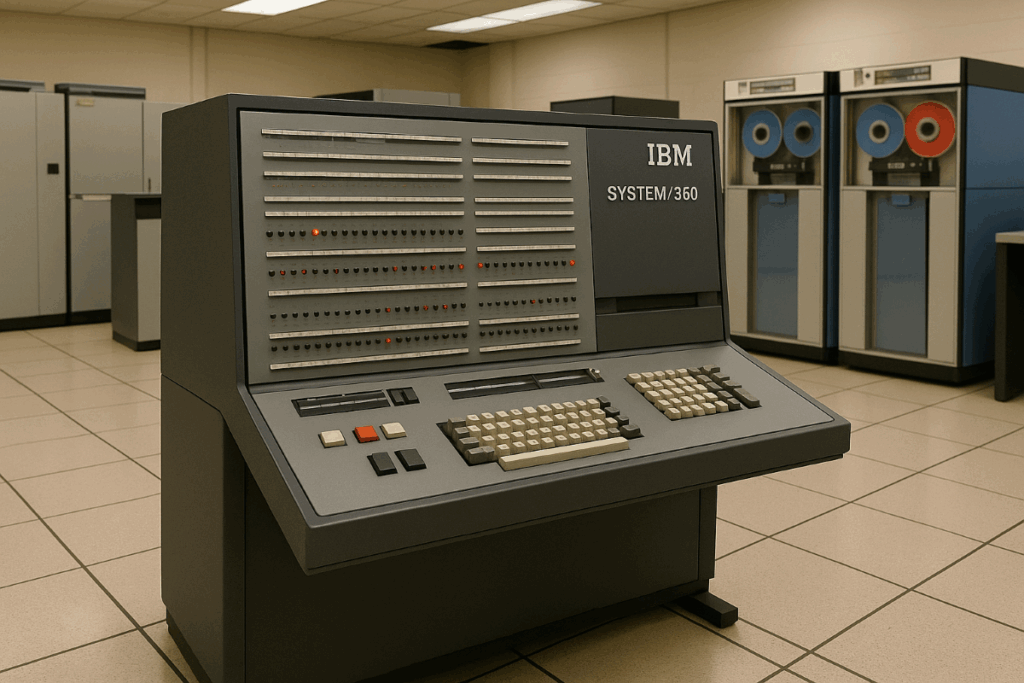AI
AI writing tools: A programmer’s perspective
AI Writing Tools – Adapt or Die
I am going to approach this from a different perspective. The perspective of someone who spent 42 years in IT dealing with never-ending change. Don’t worry, I am going to give you the short version. I won’t make you suffer through my entire career; I’ll just hit the high points.
From Mainframes to PCs: The First Tech Shift
I started programming in 1982 on an IBM 360 mainframe. We used COBOL and JCL to run a bunch of batch jobs that powered the business. I spent a good 10 years doing COBOL for various companies as an employee or as a consultant. It paid the bills for my young, growing family. Various companies also had a group, largely of women, called clerk typists, who spent the day endlessly typing documents for company business.
By the 1990s, PCs had become popular, and with them came new programming languages, such as C++, Visual Basic, Object Oriented Pascal (Delphi), etc. Programmers adapted. Well, some did. Some stayed with COBOL a bit too long. Why too long? Because the job market changed, those older skills were in less demand.
Next came client-server, which was about spreading the workload across different machines. The programming languages stayed the same, but the way the computers talked to each other was different. By this time, the clerk typists were called word processors, and instead of using typewriters, they used PCs with word processing software.
The Internet Arrives
While all of this was happening, the internet was becoming a thing. By the late 90s and early 2000s, first individuals and then companies started using the internet. The word processors were now called data entry clerks or analysts.
For programmers, this meant learning HTML and JavaScript. Those diehard COBOL programmers had fewer opportunities. Well, except for Y2K. But just after New Year’s 2000, when the world didn’t break, many of the COBOL programmers’ contracts were terminated.
Then Came Social Media
By the mid-2000s, social media exploded. Early sites like Myspace allowed anyone to have an internet presence without having to code. People were more computer literate, and programs like MS Word meant anyone could type a document, so businesses didn’t need dedicated staff to do that work.
By this time, Microsoft owned the computer desktop. Businesses standardized on Microsoft, starting with Windows 3.1. MS Word beat out Borland’s WordPerfect for Windows, and Excel beat out Quatro Pro for Windows (it was a spreadsheet in case you never heard of it).
I could go on, but you get the idea. So why the history lesson?
It’s simple; technology evolved, and we evolved with it. In IT, it was mostly adapt or die. You either learned new skills or found fewer job opportunities.
Adapt or Be Left Behind
For example, at one point in my career, for about 5 years, I was a Delphi developer. I loved the tool and was pretty good at it. But Delphi jobs were few and far between.
And then it happened, I was laid off. Delphi was great for building Windows apps, but the market was drying up. I was forced to return to COBOL for a while (it was good to have that as a fallback). I even did some work in PowerBuilder. If you ever fought with the PowerBuilder data window, you have my sympathy. The demand for these older tools quickly faded after Y2K, as the tech world shifted to web development and newer platforms.
So, I switched to Java, got a couple of certifications (not as easy as I am making sound) and that carried me for a good 10 years. After that, I moved into management but kept up with technology. I managed teams that did Java, Tibco, Pega, and IBM Portal. My last professional certification was as an AWS Solutions Architect, even though I was a manager.

AI Writing Tools Are Just the Next Chapter
The point is that technology keeps advancing. It never goes backward. I keep seeing people complaining about AI, particularly people in the arts. But my judgment is that AI is here to stay, whether you like it or not. I am not saying all change is good; what I am saying is that it is like Thanos—it is inevitable.
AI writing tools are just the next step in the continuous evolution of technology. AI writing tools are not perfect. Clearly there is a lot of room for improvement. But as over AI improves, the tools then the AI writing tools will also improve.
So, the old programmer in me just keeps adapting.
(Oh, BTW, this article is 100% human written. I had to Google how to add an em-dash, just for fun).
Further Reading & Resources
-
What Is ChatGPT? – OpenAI’s official page on ChatGPT, one of the most widely discussed AI writing tools.
-
How Grammarly Uses AI – A behind-the-scenes look at how Grammarly integrates AI into writing assistance.
-
What Is Jasper AI? – An overview of Jasper, a leading AI copywriting platform used in marketing and content creation.
Connect with the Author
Curious about the inspiration behind The Unmaking of America or want to follow the latest news and insights from J.T. Mercer? Dive deeper and stay connected through the links below:
-
About the Author
Discover more about J.T. Mercer’s background, writing journey, and the real-world events that inspired The Unmaking of America. Learn what drives the storytelling and how this trilogy came to life. -
NRP Dispatch Blog
Stay informed with the NRP Dispatch blog, where you’ll find author updates, behind-the-scenes commentary, and thought-provoking articles on current events, democracy, and the writing process.
Whether you’re interested in the creative process, want to engage with fellow readers, or simply want the latest updates, these resources are the best way to stay in touch with the world of The Unmaking of America and beyond.
Free Chapter
Begin reading The Unmaking of America today and experience a story that asks: What remains when the rules are gone, and who will stand up when it matters most? Join the Fall of America mailing list below to receive the first chapter of The Unmaking of America for free and stay connected for updates, bonus material, and author news.

